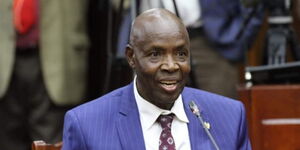The International Monetary Fund (IMF) warned of a possible liquidity challenge for countries in Sub-Saharan Africa as banks within the continent increasingly preferred to lend to governments.
In its most recent bulletin, the Bretton Woods Institution warned that this trend will potentially lead to firms having a lower capacity to service their loans.
“Since the pandemic, private sector credit as a share of bank assets remained broadly unchanged, while lending to the government has seen a continued increase,” read the report in part.
In its document, the IMF revealed that the prime lending rate which is the interest rate usually dangled to top corporations doubled in the year 2023.
This indicated that the interest rates not only doubled for top corporations but could potentially be higher for small businesses as prime lending rates are more favourable.
“Domestically, across over half of the region’s countries with available data, the median prime lending rate more than doubled,” stated the IMF.
IMF also explained that top corporations from Sub-Saharan Africa, which had access to international markets also opted to take out loans from foreign lenders.
Aside from the increase in the lending rates by the banks, the IMF also noted that businesses in Kenya have encountered operational problems attributed to foreign currency shortages and import restrictions.
“Moreover, several countries are facing challenges like foreign currency shortages or import restrictions (for example, Angola, Chad, Ethiopia, Kenya, and Nigeria) which have complicated business operations,” explained IMF.
These challenges are stated to come at a time when the country issued a Eurobond that was oversubscribed enabling the government to service some of its existing debt.
Economists have pointed out that the Eurobond issuance in February contributed to the Shilling's recovery lifting it from a protracted slump against the United States Dollar.
However, despite the successful Eurobond floatation and the Shilling's intermittent recovery, some Kenyan banks have continued to increase retail lending rates.












